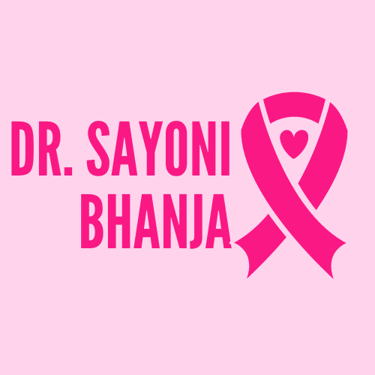: Chemotherapy 101: Essential Guide for First-Time Cancer Patientsour blog post
Starting chemotherapy? Dr. Sayoni Bhanja explains what to expect, how to prepare, and essential tips for managing side effects before your first session.
Dr. Sayoni Bhanja
5/6/20252 min read


Chemotherapy 101: What Every Patient Should Know Before Starting Treatment
– A Guide by Dr. Sayoni Bhanja
Receiving a cancer diagnosis is life-changing—and the decision to begin chemotherapy often brings a mix of uncertainty, fear, and questions. To help patients and their families navigate this journey with confidence, Dr. Sayoni Bhanja, a trusted cancer specialist, shares key insights on what to expect from chemotherapy and how to prepare both mentally and physically.
🔬 What is Chemotherapy?
Chemotherapy is a treatment that uses drugs to kill fast-growing cancer cells. It can be administered in various forms—IV infusion, oral tablets, injections, or even topical creams—depending on the type and stage of cancer. According to Dr. Sayoni Bhanja, chemotherapy may be used alone or in combination with surgery or radiation, based on the treatment goals.
🎯 Goals of Chemotherapy
Dr. Bhanja outlines the four primary objectives of chemotherapy:
Curative: To eliminate cancer entirely.
Adjuvant: To kill any remaining cancer cells after surgery.
Neoadjuvant: To shrink tumors before surgery.
Palliative: To relieve symptoms in advanced stages.
🩺 What to Expect Before Starting Chemotherapy
Before your first session, Dr. Sayoni Bhanja recommends:
Comprehensive consultation: Understanding the treatment plan, duration, drug types, and potential outcomes.
Medical assessments: Baseline blood tests, scans, and organ function evaluations to ensure readiness.
Fertility discussion: Planning for fertility preservation if needed.
Port placement: If necessary, a port or central line may be surgically inserted for easier drug delivery.
🧘♀️ How to Prepare for Your First Chemotherapy Session
Dr. Bhanja suggests the following practical steps:
Eat light but nutritious food before treatment
Stay well-hydrated
Dress comfortably and bring entertainment or comfort items
Arrange for transportation, especially for your first cycle
Prepare mentally with relaxation or mindfulness techniques
⚠️ Common Side Effects & Management Tips
While side effects vary, some common ones include:
Fatigue
Nausea or vomiting
Hair loss
Low immunity
Mouth sores
Appetite loss
Dr. Sayoni Bhanja emphasizes:
“Most side effects can be managed effectively. The key is open communication with your oncologist and not ignoring any discomfort.”
🧠 Coping Emotionally with Chemotherapy
Chemotherapy can be emotionally draining. Dr. Bhanja advises:
Seek support from family, friends, or cancer support groups
Practice mindfulness or meditation
Maintain a daily routine as much as possible
Don’t hesitate to seek psychological counseling when needed
🚨 When to Call Your Doctor
Contact your care team immediately if you experience:
Fever above 100.4°F (38°C)
Severe vomiting or diarrhea
Chest pain or shortness of breath
Excessive bleeding or bruising
Signs of infection near your port or catheter
✅ Final Words from Dr. Sayoni Bhanja
“Chemotherapy may seem intimidating at first, but remember—you are not alone. With the right guidance, preparation, and mindset, most patients are able to adapt well and maintain quality of life throughout their treatment.”
If you or a loved one is about to begin chemotherapy, use this guide as a starting point—and consult regularly with your oncologist to ensure the best care possible.
